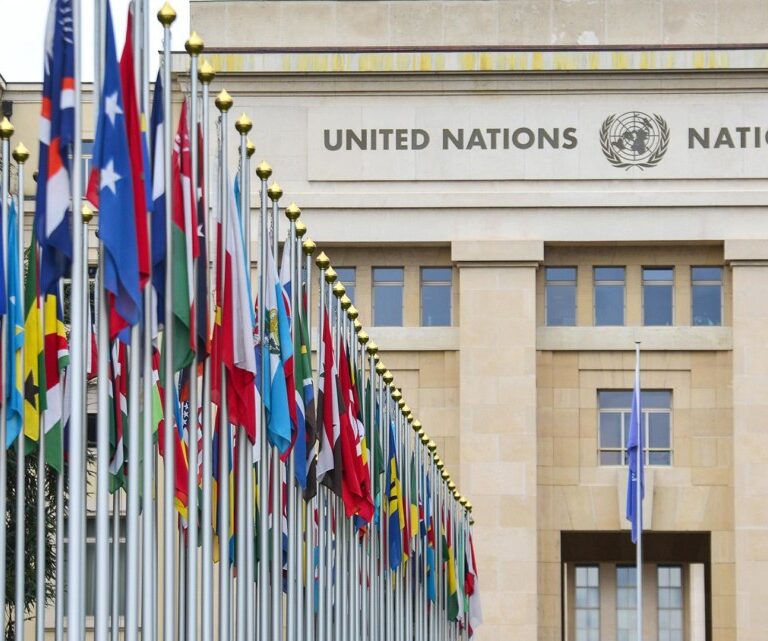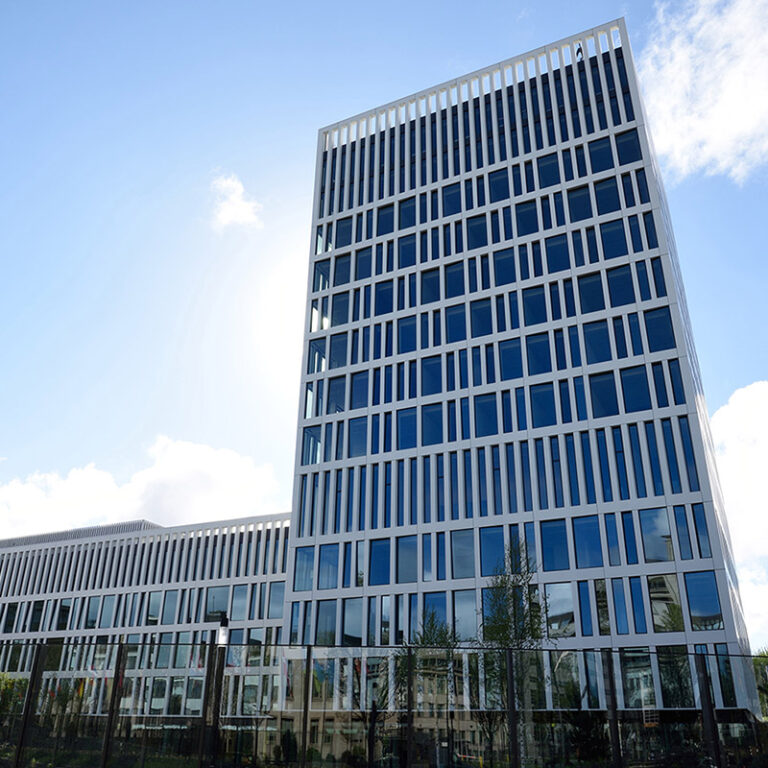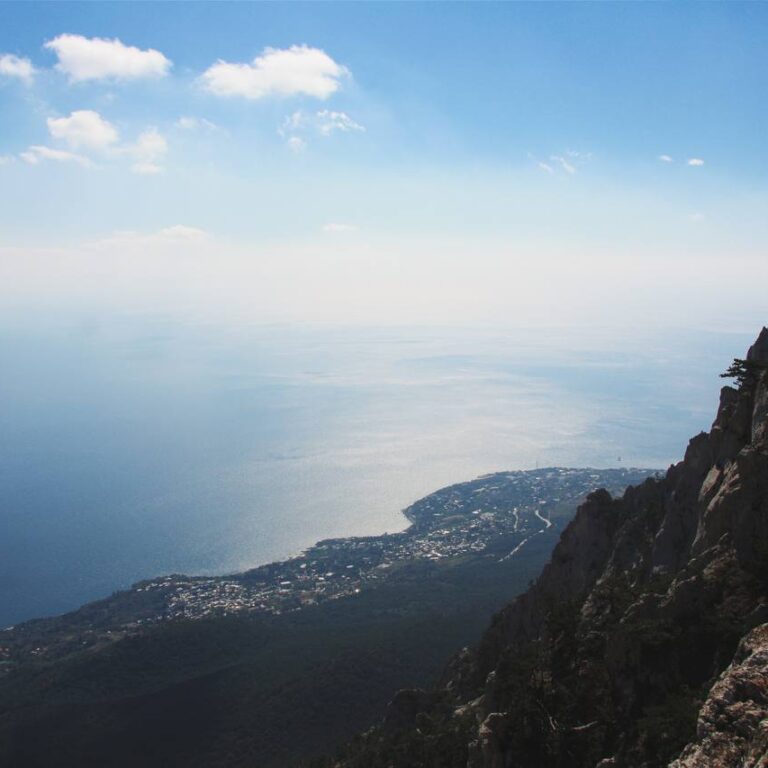Professor Borys Babin
Since 2020 our Association sent more than 100 submissions and proposals to UN human rights’ strictures, including UN Human Rights Council (HRC), major part of them were published in the UN web-sources, including the issues of transitional justice, various civil, politic, social and cultural rights and non-discrimination issues.
ARC informed UN structures and many other international bodies that illegal occupation and attempted annexation of the Crimea by Russia since 2014, as a part of Russian-Ukrainian interstate conflict, changed the situation in the region and worsened significantly the possibilities of human rights’ realization and protection that made the aspects of defending human rights from interstate conflict’s consequences and related Russia’s terroristic activities extremely important.
More than 50 our submissions were published by UN HRC bodies and 10 of ARC’s submission was sent, regarding reports and researches of UN HRC Special Rapporteurs and Independent Experts activities for 52th Council’s Session held in Genève on March and April, 2023.
On 4th of April the UN HRC Resolution 52/42 “Situation of Human Rights in Ukraine Stemming from the Russian Aggression” was adopted, with 28 in favour, 17 abstained and 2 against, that was done by such “democracies” as communistic China and Eritrea.
UN HRC Resolution 52/42 recalled the obligations of all States under Article 2 of the UN Charter, and on demands of UN General Assembly resolution 3314 (XXIX) “Definition of aggression”. Resolution recalled further UN General Assembly resolution ES-11/1 of 2 March 2022 on the aggression against Ukraine, UN HRC resolutions 49/1 of 4 March 2022 and S-34/1 of 12 May 2022.
UN HRC Resolution expressed grave concern at the ongoing human rights and humanitarian crisis in Ukraine, particularly at the reports of violations and abuses of human rights and violations of international humanitarian law by Russia, including gross and systematic violations and abuses of human rights, and recalling the strong expressions of concern made by the Secretary-General, the UN High Commissioner for Human Rights, the UN Independent International Commission of Inquiry on Ukraine, the special procedures of the UN HRC and the treaty bodies.
UN HRC Resolution also reaffirmed the significance of the Convention on the Prevention and Punishment of the Crime of Genocide, and recalled that massive, serious and systematic violations of human rights and international humanitarian law might result in genocide, also recalling the UN reports based on the work of the human rights monitoring mission in Ukraine established in 2014, and the relevant reports of the OSCE Moscow Mechanism missions of experts.
UN HRC Resolution expressed grave concernat the conclusions of the Commission of Inquiry, reflected in its report, that a wide range of violations of international human rights law and violations of international humanitarian law, many of which amount to war crimes, have been committed by aggressor in Ukraine since 24 February 2022, noting with concern that the Commission of Inquiry also found that the waves of attacks by Russian armed forces on Ukrainian energy-related infrastructure and the use of torture by Russian authoritiesmay amount to crimes against humanity.
UN HRC Resolution expressed grave concern at the conclusions of the Commission of Inquiry that Russian authorities have been responsible for the unlawful transfer and deportation of civilians and of other protected persons, in particular children, within Ukraine or to Russia, respectively, whichare a war crimes.
UN HRC Resolution strongly condemned the damage to and destruction of residential areas and critical civilian infrastructure, including educational institutions, medical facilities, water and sanitation and fuel supplies, caused by indiscriminate bombing and shelling by Russia in populated areas, attacks on Ukrainian energy-related infrastructure, including on and in the vicinity of nuclear facilities, in particular the Zaporizhzhia nuclear power plant, and noting that these attacks have deprived much of the civilian population of electricity, water and sanitation, heating, including during cold winter months, and telecommunications and have hampered access to healthcare and education.
UN HRC Resolution condemned all acts of unlawful destructionof, damage to andtargeting of cultural heritage, such as sites, institutions and objects of cultural, historical and religious significance in Ukraine, by military attacks by Russia, expressing deep concern at the situation of persons with disabilities and of older persons.
UN HRC Resolution also welcomed the investigation by the Office of the Prosecutor of the International Criminal Court into the situation in Ukraine, noting the issuance by its Pre-Trial Chamber of arrest warrants for the alleged war crimes of the unlawful deportation of children and the unlawful transfer of children from occupied areas of Ukraine to Russia.
UN HRC Resolution also noted the role of the International Court of Justice in settling, in accordance with international law, legal disputes submitted to it by States, and recalling the order issued by that Court on 16 March 2022 for Russia to immediately suspend the military operations in the territory of Ukraine.
UN HRC Resolution reaffirmed UN strong commitment to the sovereignty, political independence, unity and territorial integrity of Ukraine within its internationally recognized borders, extending to its territorial waters, that include Crimean peninsula. Resolution called for the swift and verifiable withdrawal of Russian troops and Russian-backed armed groups from the entire territory of Ukraine, within its internationally recognized borders and its territorial waters, in order to prevent further violations and abuses of human rights and violations of international humanitarian law in the country, and stresses the urgent need for the immediate cessation of military hostilities against Ukraine.
UN HRC Resolution urged Russia to cease the unlawful forced transfer and deportation of civilians and other protected persons within Ukraine or to Russia, respectively, in particular of children, including those from institutional care, unaccompanied children and separated children. Resolution demanded that Russian grant representatives and staff of established international human rights and humanitarian mechanisms unhindered, immediate, sustained and safe access, provide reliable and comprehensive information about the number and the whereabouts of these civilians, and ensure their dignified treatment and their safe return.
UN HRC Resolution also expressed concernatthe impact of the conflict on increased food insecurity globally, in particular in the least developed countries, as Ukraine and the region are one of the world’s most important areas for grain and agricultural exports, when millions of people are facing famine or the immediate risk of famine or are experiencing severe food insecurity in several regions of the world, as well as on energy security, and underlined the importance of a stable and strengthened Initiativeon the Safe Transportation of Grain and Foodstuffs from Ukrainian Ports and other relevant initiatives.
UN HRC Resolution specially stressed the importance of maintaining free, open, interoperable, reliable and secure access to the Internet, and condemns unequivocally any measures that prevent or disrupt an individual’s ability to receive or impart information online or offline, including partial or complete Internet shutdowns.
Resolution encouraged relevant thematic special procedure mandate holders, within their respective mandates, to pay particular attention to the situation of human rights in Ukraine; HRC underscored the urgency of continuing prompt, independent and impartial investigations into all alleged abuses and violations to end impunity and ensure accountability for those responsible through the appropriate justice mechanisms, including for the most serious crimes under international law.
UN HRC Resolution emphasized the need to ensure justice for all victims of violations and abuses of human rights and violations of international humanitarian law, and also emphasizes that bringing those responsible to justice is critical for the prevention of further human rights violations and abuses and violations of international humanitarian law.
Resolution also extended the mandate of the Independent International Commission of Inquiry on Ukraine, defined by the UN HRC in its Resolution 49/1, for a further period of one year. It called upon all relevant parties and States, and encourages civil society, the media and other relevant stakeholders, to cooperate fully with the Сommission of Inquiry to allow it to effectively fulfil its mandate, and to provide it with relevant information or documentation they may possess or come to possess, as appropriate and also called upon the relevant organs, bodies and agencies of the UN system to cooperate fully with the Commission of Inquiry.
This UN HRC Resolution has importance as it confirm the presence of Russia-committed genocide signs in Ukraine, support the International Criminal Court’s order on arrest of Putin and point on risks of Russian aggression to global food safety. Also the role of UN Independent International Commission of Inquiry on Ukraine will be crucial for fact-finding in 2023-2024 regarding Russian international crimes and gross human rights violations in Ukraine, including Crimea.







